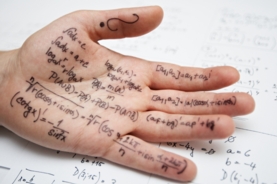The implications of this research extend beyond the walls of the laboratory. Political terms, job tenures, school years, golf games—all happen over a finite period of time. We’d be wise to keep an extra-vigilant eye, therefore, on lame-duck senators, students in spring semester, and golf partners on the eighteenth hole.Even further, it demonstrates another side of a natural ability to anticipate the future. A strange mood comes over us when we have the sense of an ending. We get a little friskier; we live with more abandon. (Jon Stewart, for instance, was arguably never perkier than in the last few months of filming the Daily Show.) This fact jibes with studies showing that that dopamine, a chemical in the brain associated with pleasure and risk-taking, ramps up in rats as they near the end of a maze. This sense of anticipation can help us eke the most out of transient moments, as we try to squeeze a little more from the toothpaste tube, even if it doesn’t belong to us.
Source: People Are More Likely to Cheat at the End – Scientific American
